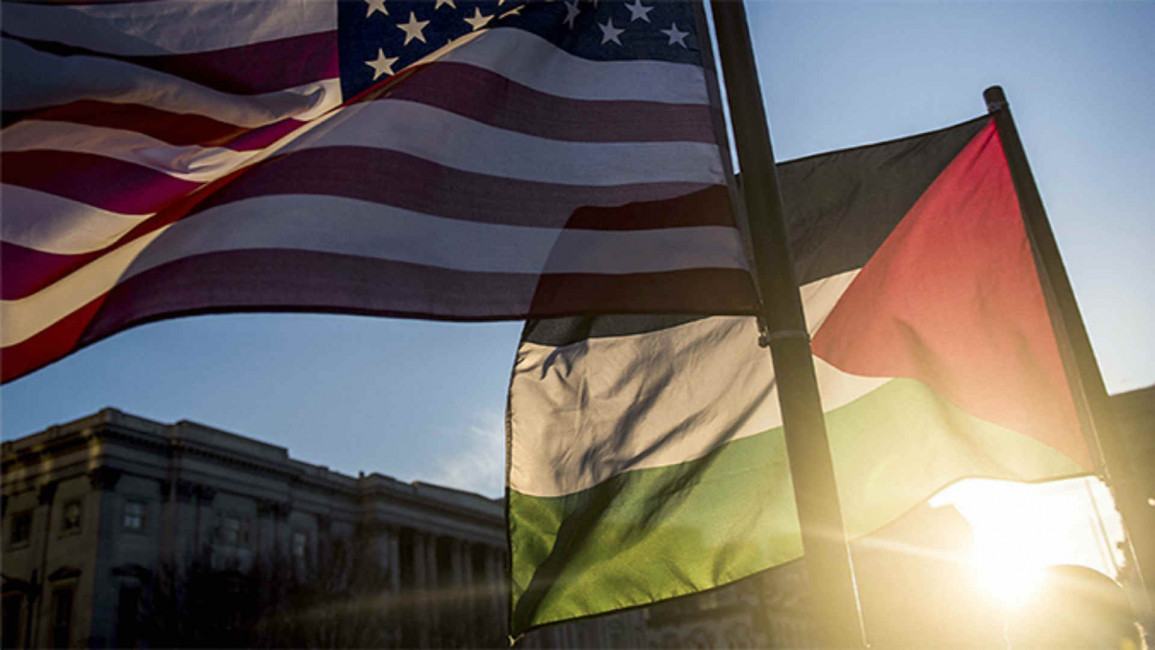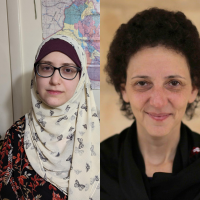
US aid and the façade of peace and reconciliation
After a long hiatus during the Trump administration, US aid and development funds have been channelled back into Palestine.
In addition to restarting the funding of UNRWA, a new funding stream has been made available as a result of a particular piece of US legislation. The Nita M. Lowey Middle East Partnership for Peace Act (MEPPA) passed in December 2020. The Act pledges $250 million over five years to two funds, with one specifically focusing on “peace and reconciliation projects” between Palestinians and Israelis.
The United States Agency for International Development (USAID) says that the aim of these projects is to “advance peaceful co-existence between Israelis and Palestinians to enable a sustainable two-state solution”. This was celebrated in some mainstream media outlets as bringing “momentum” and a fresh approach to an otherwise stagnant peace process.
The MEPPA, however, is far from the positive move it is claiming to be, rather it hides behind a veneer of peace and reconciliation whilst facilitating the continued violation of Palestinian fundamental rights. From the outset, the MEPPA adopted the language of dialogue and reconciliation- a framework often imposed on conflict situations and is premised on the understanding that contact and dialogue between two conflicting groups are the way to end the violence.
''Today, the Israeli regime has full direct and indirect control over the levers of the Palestinian economy. The injection of money into this system through peace and reconciliation initiatives is far from what the Palestinian economy needs.''
Clearly this is far from the reality between Palestinians and the Israeli regime where the root cause of violence is from Israeli settler colonisation and apartheid. The framing of dialogue and reconciliation creates a false parallel between the structural oppression of the Israeli regime and the justified resistance of oppressed Palestinians.
Indeed, it would be ridiculous to suggest that black South Africans should have engaged in dialogue and reconciliation with white South Africans whilst the apartheid regime was ongoing.
Those behind the MEPPA also tells us about the political motivations of this funding.
Following the passing of the legislation, the Alliance for Middle East Peace (ALLMEP) took credit for the initiative, explaining that it was as a result of “over a decade of advocacy” by ALLMEP “toward the creation of an International Fund for Israeli-Palestinian Peace.” ALLMEP cites a “broad coalition” of endorsers including J Street, the New Israel Fund, Jewish Federations of North America, the Israel Action Network, Churches for Middle East Peace, AIPAC, AJC, and the Israel Policy Forum. Notably, all but one of these organisations are avowedly Zionist.
ALLMEP also cites the International Fund for Ireland (IFI) as “the conceptual framework” behind its idea for a fund for “Israeli-Palestinian peace,” and calls the Partnership for Peace Act as a step towards such a fund. Various Irish scholars including Brendan Browne and Elaine Bradley have strongly argued that the imposition of the Northern Irish Peace Model on Palestine is completely inappropriate and deeply problematic. Not only because of the obvious contextual differences, but also because the Northern Irish Peace Accord was a “carefully constructed, bureaucratic means of providing a ruse of ‘peace’ whilst appeasing claims to self-determination and ignoring broader colonial history”.
Another tangential argument being pushed is that the MEPPA has the potential to “jump start” the Palestinian economy. An argument that conveniently elides from reality where the Palestinian economy has been wholly suppressed by the Israeli regime. Beyond misleading, it fails to hold the Israeli regime accountable for its continuous destruction of the Palestinian economy.
Today, the Israeli regime has full direct and indirect control over the levers of the Palestinian economy. The injection of money into this system through peace and reconciliation initiatives is far from what the Palestinian economy needs. Rather, as Leila Farsakh writes: “The Palestinian economy … cannot exist, let alone prosper, before the international community holds Israel accountable to international law, protects Palestinian rights and forces Israel to end its occupation.”
On top of all of this, the MEPPA also has a very troubling loophole; it allows and even incentivises Israeli settler businesses and projects in the West Bank to apply for the funding. This is despite the fact that the international community considers Israeli settlements in the Palestinian territories occupied in 1967 as illegal.
As if all of this was not enough to doubt the sincerity of the MEPPA, it also restricts the PA and its institutions from applying to the funds if they continue to pursue Israeli regime war crimes at the International Criminal Court (ICC). Yet again, another political tool being leveraged against Palestinians who are seeking legal means to hold the Israeli regime accountable for ongoing injustices.
None of this is particularly surprising considering the US continues to be the Israeli regime’s biggest ally, providing it not only with decades of impunity but also the financial capabilities to inflict the violent structure that keeps Palestinians oppressed. The MEPPA is simply another attempt, among many, to undermine the fundamental rights of Palestinians through a veneer of peace and reconciliation.
This piece draws upon a policy paper written in Al Shabaka.
Yara Hawari is the Senior Analyst of Al-Shabaka, the Palestinian Policy Network.
Follow her on Twitter: @yarahawari
Have questions or comments? Email us at: editorial-english@alaraby.co.uk.
Opinions expressed in this article remain those of the author and do not necessarily represent those of The New Arab, its editorial board or staff.




